News
-
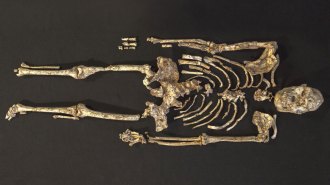 Anthropology
AnthropologyLittle Foot’s shoulders hint at how a human-chimp common ancestor climbed
The shape of the 3.67-million-year-old hominid’s shoulder blades suggests it had a gorilla-like ability to climb trees.
By Bruce Bower -
 Earth
EarthLightning may be an important source of air-cleaning chemicals
Airplane observations show that thunderstorms can directly generate vast quantities of atmosphere-cleansing chemicals called oxidants.
-
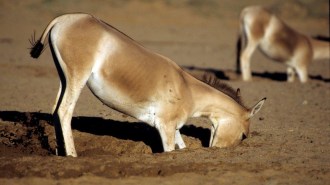 Ecosystems
EcosystemsWild donkeys and horses engineer water holes that help other species
Dozens of animals and even some plants in the American Southwest take advantage of water-filled holes dug by these nonnative equids.
-
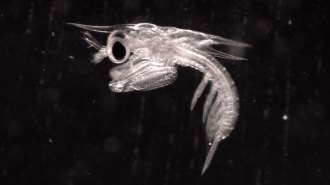 Animals
AnimalsMantis shrimp start practicing their punches at just 9 days old
The fastest punches in the animal kingdom probably belong to mantis shrimp, who begin unleashing these attacks just over a week after hatching.
-
 Physics
PhysicsA clock’s accuracy may be tied to the entropy it creates
A clock made from a thin, wiggling membrane releases more entropy, or disorder, as it becomes more accurate.
-
 Climate
ClimateClimate change may have changed the direction of the North Pole’s drift
A mid-1990s shift in the movement of the pole was driven by glacial melt, in part caused by climate change, among other factors, a new study reports.
By Sid Perkins -
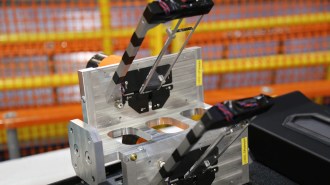 Particle Physics
Particle PhysicsThe thickness of lead’s neutron ‘skin’ has been precisely measured
At 0.28 trillionths of a millimeter thick, the shell of neutrons around the nucleus of an atom of lead is a bit thicker than physicists had predicted.
-
 Health & Medicine
Health & MedicineCOVID-19 can affect the brain. New clues hint at how
Anxiety, depression and strokes can occur after infection, leaving experts to determine how the virus affects the brain.
-
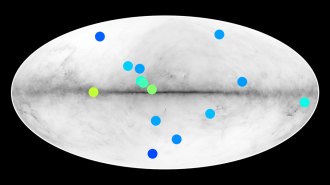 Space
SpaceStars made of antimatter could lurk in the Milky Way
Fourteen celestial sources of gamma rays provide preliminary hints of matter colliding with “antistars” in our galaxy.
-
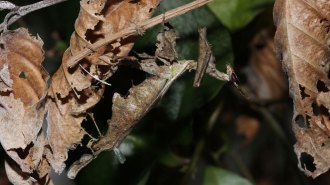 Animals
AnimalsThis praying mantis inflates a strange pheromone gland to lure mates
Researchers stumbled across a first among mantises: an inflatable organ that spreads pheromones, helping mates find each other in the dark rainforest.
By Jake Buehler -
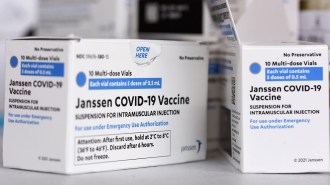 Health & Medicine
Health & MedicineFDA and CDC OK resuming J&J COVID-19 shots paused over rare clot concerns
The single-dose vaccine carries a low risk of rare blood clots in women under 50, but experts say its benefits outweigh that risk.
-
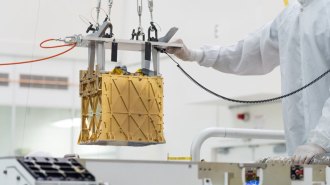 Planetary Science
Planetary ScienceNASA’s Perseverance rover split CO2 to make breathable air on Mars
An oxygen-making experiment on Perseverance shows that astronauts will one day be able to make air to breathe and, better yet, rocket fuel.